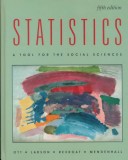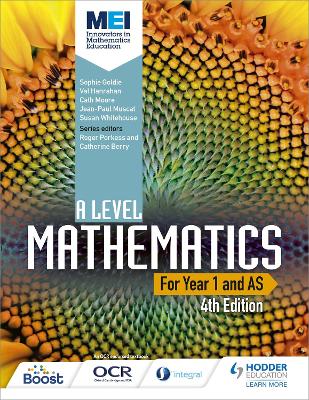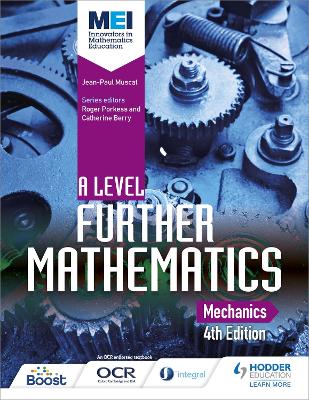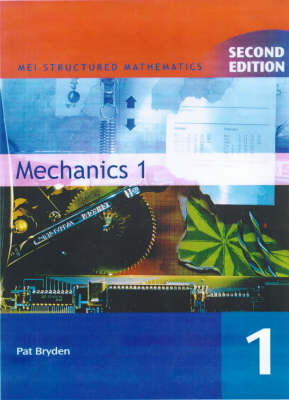MEI Structured Mathematics
5 total works
MEI A Level Mathematics Year 1 (AS) 4th Edition
by Sophie Goldie, Cath Moore, Val Hanrahan, Jean-Paul Muscat, and Susan Whitehouse
Exam Board: MEI
Level: A-level
Subject: Mathematics
First Teaching: September 2017
First Exam: June 2018
An OCR endorsed textbook
Encourage every student to develop a deeper understanding of mathematical concepts and their applications with textbooks that draw on the well-known MEI (Mathematics in Education and Industry) series, updated and tailored to the 2017 OCR (MEI) specification and developed by subject experts and MEI.
- Develop problem-solving, proof and modelling skills with plenty of questions and well-structured exercises that build skills and mathematical techniques.
- Build connections between topics, using real-world contexts to help develop mathematical modelling skills, thus providing a fuller and more coherent understanding of mathematical concepts.
- Prepare students for assessment with practice questions written by subject experts.
- Ensure coverage of the new statistics requirements with five dedicated statistics chapters and questions around the use of large data sets.
- Supports the use of technology with a variety of questions based around the use of spreadsheets, graphing software and graphing calculators.
- Provide clear paths of progression that combine pure and applied maths into a coherent whole.
Exam Board: MEI
Level: A-level
Subject: Mathematics
First Teaching: September 2017
First Exam: June 2018
An OCR endorsed textbook
Help students to develop their knowledge and apply their reasoning to mathematical problems with textbooks that draw on the well-known MEI (Mathematics in Education and Industry) series, updated and tailored to the 2017 OCR (MEI) specification and developed by subject experts and MEI.
- Ensure targeted development of reasoning and problem-solving skills with plenty of practice questions and structured exercises that build mathematical skills and techniques.
- Build connections between topics, using real-world contexts to help develop mathematical modelling skills, thus providing a fuller and more coherent understanding of mathematical concepts.
- Help students to overcome misconceptions and develop insight into problem solving with annotated worked examples.
- Develop understanding and measure progress with graduated exercises that support students at every stage of their learning.
- Provide clear paths of progression that combine pure and applied maths into a coherent whole.




